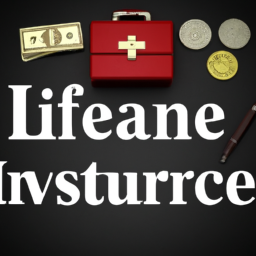Life insurance is a crucial aspect of financial planning for many individuals and families. It provides a safety net that can help offset the financial burden of unexpected events, such as premature death or disability. In recent years, life insurance has also become a popular investment option, offering policyholders the opportunity to earn returns on their premiums. However, investing in life insurance is not the right choice for everyone. In this article, we will discuss the pros and cons of life insurance investment and help you determine whether it's the right choice for you.
Firstly, let's understand the different types of life insurance policies available in the market. Term life insurance provides coverage for a specific period, typically 10, 20, or 30 years. If the policyholder dies during the policy term, their beneficiaries receive a death benefit. Whole life insurance, on the other hand, provides coverage for the policyholder's entire life and includes a cash value component that grows over time. Finally, variable life insurance allows policyholders to invest in various investment options, such as stocks or bonds, while providing lifelong coverage.
Whole life insurance is often marketed as an investment, as it combines life insurance coverage with a savings component. The cash value component of the policy grows over time, providing policyholders with a source of savings that they can borrow against or withdraw. However, the returns on whole life insurance policies are generally lower than other investment options, such as stocks or mutual funds. Additionally, whole life insurance policies are often more expensive than term life insurance policies, making them a less attractive option for those on a tight budget.
Cash value life insurance refers to any life insurance policy that includes both a death benefit and a savings component. This type of policy can be either whole life insurance or universal life insurance. Universal life insurance policies allow policyholders to adjust their premiums and death benefit over time, making them a more flexible option than whole life insurance. However, cash value life insurance policies are often more expensive than term life insurance policies, and the returns on the savings component may not be as high as other investment options.
When choosing a life insurance policy, it's important to consider your long-term goals and financial needs. Whole life insurance provides long-term coverage and a cash value component that acts like a savings account. These benefit make it more attractive to those who are looking for a way to save for the future while also protecting their loved ones. However, if you're primarily interested in investing your money, other options may provide a higher return on your investment.
Variable life insurance is an option for people who have a deep understanding of their investment strategy and want lifetime insurance coverage. These policies allow policyholders to invest in a range of investment options, such as stocks or bonds, while also providing a death benefit to their beneficiaries. However, variable life insurance policies are often more expensive than other types of life insurance, and the returns on the investment component may not be as high as other investment options.
There's more to life insurance than just a big check after you check out. Life insurance can also help provide financial stability for residents and their families in case of premature death. One major benefit of buying life insurance is that it can help cover any outstanding debts or expenses, such as mortgages, car loans, or medical bills. Additionally, life insurance can provide a source of income for your loved ones, helping to ensure that they are able to maintain their standard of living without financial strain.
Choosing the best life insurance policy for your needs depends on factors such as whether you want to invest a portion of your premium and whether you need lifelong coverage or coverage for a specific period. It's important to do your research and compare policies from different providers to find the best coverage and rates for your needs. See Forbes Advisor's ratings for the best life insurance companies. We evaluated costs and coverage features for each company's term life, whole life, and universal life policies to help you make an informed decision.
In conclusion, investing in life insurance can be a great way to protect your loved ones while also earning returns on your premiums. However, it's important to consider the pros and cons of life insurance investment and choose the policy that best fits your long-term financial goals. Remember to do your research and compare policies from different providers to find the best coverage and rates for your needs.
